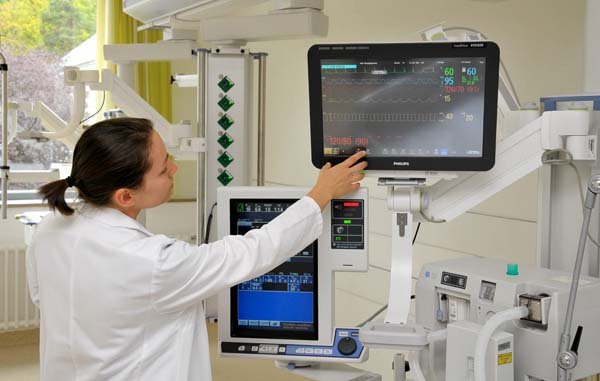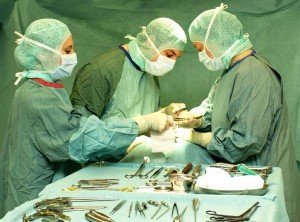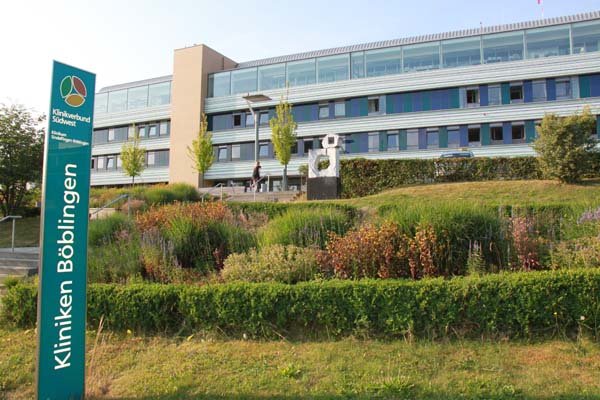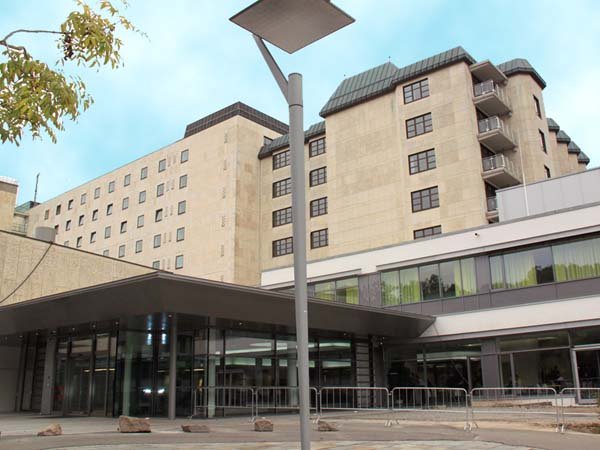
By Greg Jones
USAG Stuttgart Public Affairs Office
Providing effective health care services to the 25,000-strong Stuttgart military community is no easy task, and one that the Stuttgart Army Health Clinic simply could not accomplish without an effective team backing it up. That’s why the clinic has established relationships with area hospitals and formed an international team of medical professionals to provide for all of the community’s medical needs. Here’s how this team provides you with world-class health care:
The clinics
The Stuttgart Army Health Clinic serves as the primary care provider for service members and their command-sponsored dependents, and provides some space-available services to retirees and civilians under certain health plans.
The Stuttgart clinic provides basic medical needs. Essentially they are the family practitioner for the military community.
The clinic also provides some specialty clinics such as optometry, physical therapy, wellness and behavioral health. For medical needs that can’t be met through the Stuttgart clinic, patients may be referred to Landstuhl Regional Medical Center.
Often however, these services may not be practical for the patient to use or a patient needs medical care that isn’t available in the military health care system. In these cases, the host nation medical system steps in and patients are referred to any number of the many host-nation providers in the Stuttgart area.
There are eight major hospitals in the Stuttgart metropolitan area, and the Stuttgart clinic works primarily with three of them.
The Böblingen Hospital is located very near Panzer Kaserne and provides a wide range of inpatient care, as well as pediatric care. Patients will often be referred there for surgeries, pediatric care needs and other inpatient care.
The Sindelfingen Hospital (a partner organization to the Böblingen “Klinikum” or hospital) specializes in orthopedics and muscular-skeletal conditions and injuries.
Finally, the Robert Bosch Hospital in Stuttgart provides a wide variety of inpatient services and has a premiere trauma center, but does not have pediatric care.

The referral process
The referral process starts with the primary care provider. Primary care physicians at the Stuttgart Army Health Clinic will assess a condition or injury and determine if specialty care is needed. If it is warranted, they then enter a referral into Tricare’s computer system. International SOS, who provides administration of Tricare services overseas, then takes this referral and assigns it to an appropriate care provider. In some cases the primary care physician can designate a specific provider to be seen, according to the Stuttgart Tricare service center.
Usually a few days after the referral is entered it is ready for an appointment to be made.
While the patient can have International SOS make an appointment on their behalf, officials at the health clinic recommend patients make their own appointments to minimize the risk of scheduling conflicts or other problems. Most providers who get referrals have English-speaking staffs that can provide assistance to patients when they call to make appointments.
Initial out of pocket expenses
In some cases patients may have to pay the full cost out of pocket for medical care and seek reimbursement (according to their coverage plans) later. For example, prescriptions acquired off-post for less than €100 must be paid out of pocket initially, and then claimed for proper reimbursement.
Patient liaisons
For those who do get referred off-post, especially for inpatient care, the thought of checking in to a hospital in a foreign country can be daunting. There is a very real language and cultural barrier, and health care is provided in a very different manner than in the U.S.
“Health care here isn’t better or worse,” said Capt. Jesse Moncivais, executive officer of the Stuttgart Army Health Clinic. “It’s just delivered differently, and it takes some getting used to.”
To help with this process the Stuttgart clinic has four patient liaisons who serve as the vital link between the U.S. clinic and the host-nation providers.
They help with the language barrier. They help American patients understand the health care they are receiving. They assist in making sure the patients’ needs are met and finally, a large portion of what they do is the administrative work behind the scenes; making sure that the vital link between the primary care and off-base specialty care is never broken.
Non-Tricare enrollees
For those enrolled in Tricare Standard, or other health care programs besides Tricare Prime, the process is only slightly different. The Stuttgart Army Health Clinic will only take on Tricare Prime enrollees as a primary care provider. The clinic will provide space available services, on a reimbursable basis, to all others.
Patients in these categories should establish a primary care relationship with an off-base clinic. That primary care provider can then provide referrals and recommendations for specialty services.
Also, some of the local hospitals will charge a €250 deposit for all non-Tricare Prime patients The deposit is payable by cash or credit card, and must be made prior to rendering any medical care for an outpatient visit. Inpatient care will require a €1,000 deposit. After receiving care, if the invoice total is less than the upfront deposit, patients will receive a refund within three days. If the final invoice is higher than the upfront payment, then the remaining balance will be charged against the patient’s credit card.
Patients will then have to file for reimbursement through their respective health insurance companies.
It is important to understand that emergency care for a condition that threatens life, limb or eyesight is not subject to these fees.
Tips for off-base patients
The Stuttgart Army Health Clinic offers the following advice to those who may be new to the German health care system:
Language: Though many host nation doctors may speak English, their staff may not. If you do not speak German, take a bilingual dictionary with you. Although medical terminology translation booklets are usually available from the U.S. referring clinic, a stay in the hospital can be an excellent opportunity to learn a few words of German.
Asking questions of physicians: During rounds, junior physicians often accompany attending physicians. This can make it difficult for patients to feel comfortable asking questions. Write down your questions. During rounds, it is appropriate to ask if the doctor has time to address all questions. If not, ask when the doctor can return. Patient liaisons should be able to assist. Some German physicians may not be in the habit of explaining details to patients. They will answer all questions when asked, but sometimes do not volunteer all results or information. Be sure to ask doctors and nurses about the treatment plan.
Privacy: German privacy standards may differ from what many Americans are used to. Host nation physicians may not always use a chaperone when examining patients of the opposite sex. Ask for a chaperone if you feel uncomfortable. Generally, there are no privacy screens between beds. Do not wear transparent clothing. Take appropriate clothing that allows you to remain semi-dressed during an upper body exam. Patients may be asked to undress while nursing staff is passing through the area. This is considered proper by German medical privacy standards.
Emergency services
Emergency medical services are provided by the nearest appropriate host nation medical facility, and the telephone number to call in Germany from a civilian phone line is 112. From on base DSN phones, dial 116 for the Military Police desk. They can then contact additional emergency services as needed.
Area Hospital Information:

(photo courtesy of Klinikverbund Südwest)
Located near Panzer Kaserne, Böblingen Hospital provides a wide variety of specialty services, surgical procedures and inpatient care, including pediatrics.
Specialties: General inpatient, surgeries, pediatrics
Address:
Bunsenstrasse 120
71032 Böblingen
Telephone: 07031-668-0
Online: www.klinikverbund-suedwest.de, This web address will get you to the site of the parent company for both Böblingen and Sindelfingen hospitals. You can find links to the individual hospitals in a navigation panel on the left. A link to English language pages can be found at the bottom of the page.

(photo courtesy of Klinikverbund Südwest)
Sindelfingen Hospital specializes in orthopedics and other musculoskeletal injuries and conditions, and has a wellness center.
Specialties: orthopedics, musculoskeletal
Address:
Arthur-Gruber-Strasse 70
71065 Sindelfingen
Telephone: 07031-98-0
Online: www.klinikverbund-suedwest.de, This web address will get you to the site of the parent company for both Böblingen and Sindelfingen hospitals. You can find links to the individual hospitals in a navigation panel on the left. A link to English language pages can be found at the bottom of the page.

(photo courtesy of Robert Bosch Hospital)
Robert Bosch Hospital is the area’s main trauma center and provides a variety of specialty care, but does not offer pediatrics.
Specialties: Trauma, inpatient
Address:
Auerbachstrasse 110
70376 Stuttgart
Telephone: 0711-8101-0
Online: www.rbk.de. There is not an English language version of the website, but there are English speaking receptionists available on the telephone.
